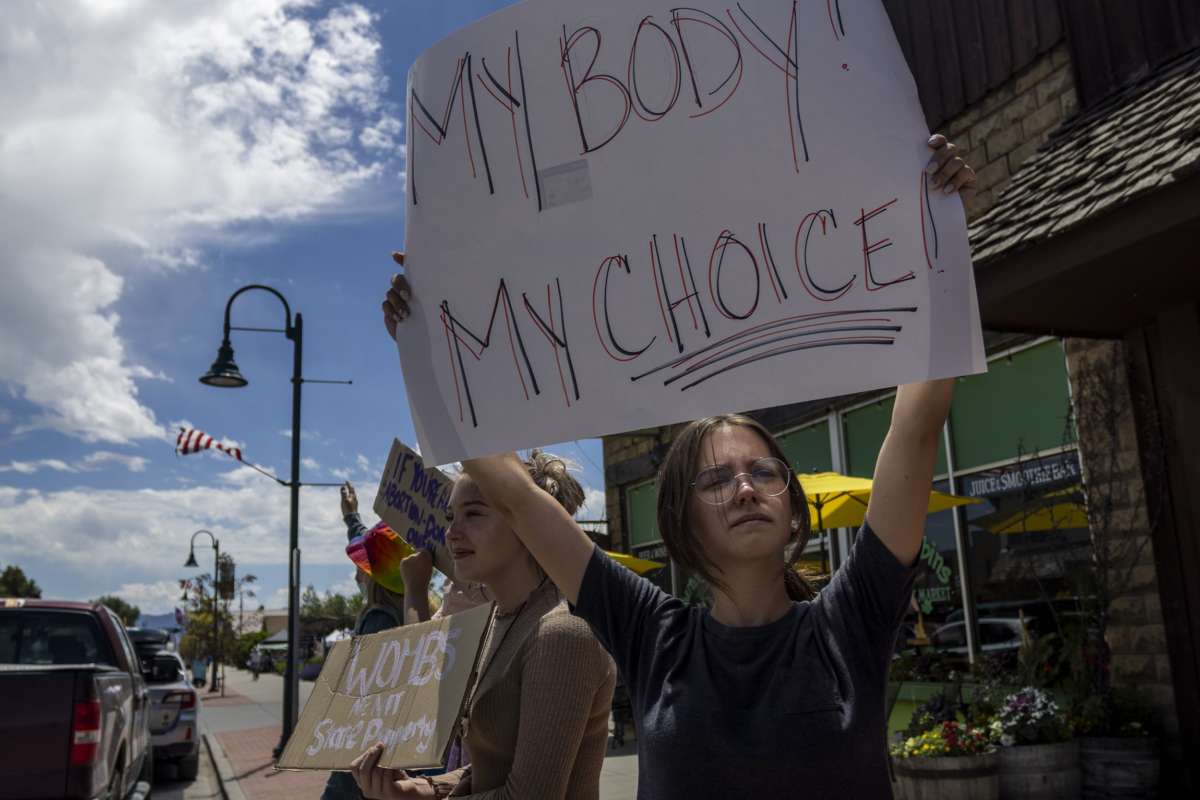Truthout is a vital news source and a living history of political struggle. If you think our work is valuable, support us with a donation of any size.
Idaho Republicans, at their annual convention over the weekend, affirmed anti-abortion stances in their official party platform — and voted to make no exceptions to abortion bans when a person’s life is threatened due to pregnancy.
When given the opportunity to vote on a single exception to allow for abortion when a person’s life depends on it (including for nonviable pregnancies, like ectopic pregnancies), the Republicans soundly rejected the idea.
By a vote of 412 GOP delegates to 164, the party voted against an amendment to the anti-abortion provision in the platform, which would have allowed for the exception to be the official stance of Idaho Republicans.
The provision does explicitly state that miscarriages — whose treatments are often the same as those for an abortion — would not be criminalized. But in addition to containing no life-saving exceptions for abortions, the platform also makes no exceptions for rape or incest, defining any abortion as “murder from the moment of fertilization.”
Such language defies widespread medical consensus about pregnancies — a fertilized egg is not considered the start of a pregnancy, as the development of any zygote requires implantation to start. Indeed, many fertilized eggs are expelled from the body naturally through menstruation, if they are not implanted on the uterine wall.
It’s highly possible that the Idaho Republican Party’s definitions and restrictions will become law in the state — the GOP currently has a supermajority in the state legislature, and the state’s anti-abortion Republican governor, Brad Little, is expected to win reelection this fall.
Idaho is set to become one of the most restrictive states in the country when it comes to abortion. A trigger law in the state was set to go into effect 30 days after a Supreme Court decision overturning Roe v. Wade was handed down, which happened in late June. However, abortion rights organizations and providers are suing the state to block the trigger law, with a judicial hearing set for August 3.
The trigger law bans the procedure at all stages of pregnancy. It contains limited exceptions, though in some cases these allowances are rendered moot by procedural issues. While victims of rape are legally allowed to obtain an abortion, they can only access the procedure after providing documentation of a police report — a requirement that makes the exception almost meaningless, since police reports aren’t ordinarily released during ongoing inquiries. Many victims of sexual assault or rape are uninclined to file police reports for myriad reasons, especially if they fear how those who assaulted them will respond to such filings.
A terrifying moment. We appeal for your support.
In the last weeks, we have witnessed an authoritarian assault on communities in Minnesota and across the nation.
The need for truthful, grassroots reporting is urgent at this cataclysmic historical moment. Yet, Trump-aligned billionaires and other allies have taken over many legacy media outlets — the culmination of a decades-long campaign to place control of the narrative into the hands of the political right.
We refuse to let Trump’s blatant propaganda machine go unchecked. Untethered to corporate ownership or advertisers, Truthout remains fearless in our reporting and our determination to use journalism as a tool for justice.
But we need your help just to fund our basic expenses. Over 80 percent of Truthout’s funding comes from small individual donations from our community of readers, and over a third of our total budget is supported by recurring monthly donors.
Truthout’s fundraiser ends tonight! We have a goal to add 143 new monthly donors before midnight. Whether you can make a small monthly donation or a larger one-time gift, Truthout only works with your support.
